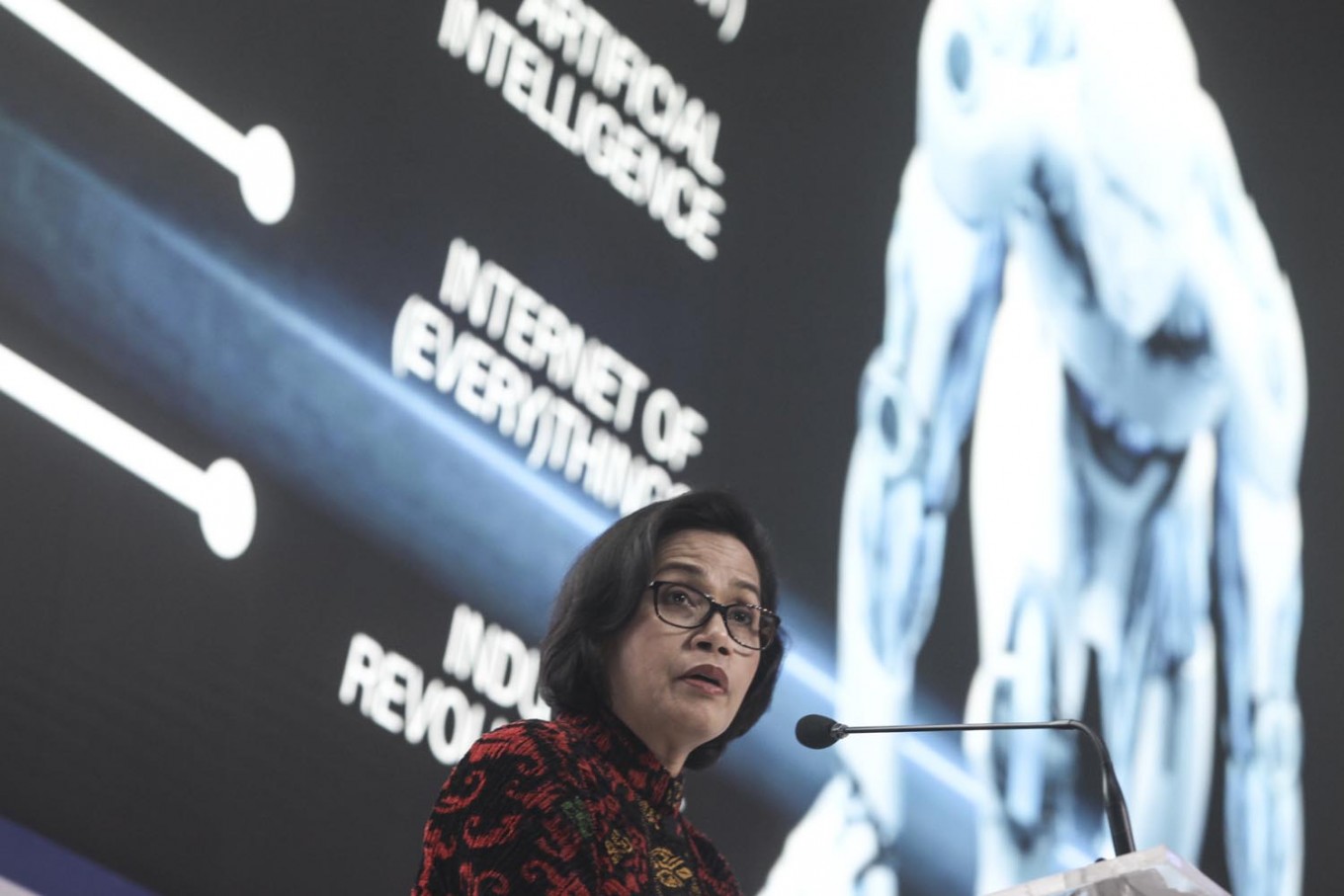
Minister Sri Mulyani woos investors to bring in FDI to Indonesia
Speaking to investors at a seminar in Jakarta recently, Finance Minister Sri Mulyani Indrawati felt compelled to mention each of the business sectors eligible to apply for a tax holiday. “I need to read this one [list of sectors eligible to apply for a tax holiday] because I heard [businesspeople say] we are not explaining […] this tax holiday effectively,” said Sri Mulyani. “I talked to some of the business [players], and they said they never heard of it.”
In April last year, the government revamped the tax holiday scheme, making the duration of the incentive conditional on the investment realized in certain sectors. Investors could also expect a speedier application process as they could apply for the incentive through the online single submission (OSS) system, a web-based licensing system operated by the Coordinating Investment Board (BKPM). Eighteen business sectors are eligible to apply for a tax holiday after the government expanded the incentive in November as part of its 16th economic policy package. The scheme offers full corporate income tax exemptions for investment of at least Rp 500 billion (US$ 35.53 million) and a 50 percent corporate income tax cut for a minimum investment of Rp 100 billion.
The sectors that can enjoy this benefit are those considered “pioneering” sectors that were vital for the Indonesian economy to develop domestically to avoid excessive import growth, including raw pharmaceutical materials, upstream petrochemical basic metal, oil refineries and the basic organic chemical industry, among others. Indonesian Chamber of Commerce and Industry (Kadin) chairman Rosan P. Roeslani separately said that while the new tax holiday scheme gave certainty for business players for the duration of the tax cut, investors had demanded clarity over the application process for the incentives. “[The government] should make it clear on how long will it take for us [businesses] to get this incentive [after submitting the application],” Rosan said on Thursday. “If we cannot measure the timespan [for the application process], such a good incentive then will become less interesting [for investors].”
Finance Ministry data shows more investors have benefitted from the new scheme compared to the old one, which was only to be given for investments of least Rp 1 trillion. Twelve companies were granted the incentive under the current scheme for investments totaling Rp 210.8 trillion, compared to only five companies having been granted the tax holiday for investments of Rp 39.4 trillion between 2011 and March 2018. The ministry’s Fiscal Policy Agency head, Suahasil Nazara, said he hoped for consistency in the implementation of the policy to ultimately send a clear message to the private sector.
“If we are consistent with this policy, I hope this will send a message to [foreign] investors [to] come in,” said Suahasil. The government had pinned its hopes on fiscal incentives, such as a tax holiday and tax allowances, as well as other structural reforms like streamlining licensing through the OSS, to attract foreign direct investment (FDI) so as to bolster the balance of payments. Recently, the government also mulled over of implementation of the reverse Tobin tax scheme, which would incentivize foreign investors who wanted to reinvest their dividends in Indonesia as opposed to repatriating their dividends. Such policy was hoped to curb excessive capital outflow.
FDI to Indonesia had decreased by 8.8 percent year-on-year (yoy) to Rp 392.7 trillion in 2018, BKPM data revealed, as the global economy was haunted by uncertainties stemming from monetary normalization undertaken by the United States Federal Reserve and trade tensions between China and the US. Commenting on the latest BKPM data, Rosan called on the government to accelerate structural reform. High severance payments were also a factor that was widely seen as hurting the country’s competitiveness in attracting FDI compared to other countries, Rosan said, while calling on the government to revise the Labor Law to make Indonesia’s labor market more competitive in the eyes of foreign investors. “The government should be bold in implementing policies that may be unpopular, such as revising the Labor Law, for example, as it may reduce incoming FDI to Indonesia,” he said.
Source: https://www.thejakartapost.com/news/2019/02/01/minister-sri-mulyani-woos-investors-to-bring-in-fdi-to-indonesia.htmlSource: https://www.thejakartapost.com/news/2019/02/01/minister-sri-mulyani-woos-investors-to-bring-in-fdi-to-indonesia.html
 English
English Japan
Japan

sildenafil citrate tab 20mg how to prescribe xiidra walmart price catcher app natural alternatives to viagra benefits of taking tamsulosin cvs caremark mail service pharmacy fax ed medicine at walgreens
taking cialis after eating gold max pink for sale viagra danger myths protein supplements for women can cialis cause dizziness 100 mg viagra reviews viagra para mujer cialis to viagra strength conversion viagra pills cialis 5 mg coupon cialis 20mg tablets coupon brand viagra natural libido enhancers food walgreens over the counter medications costco pharmacy sildenafil price cost of viagra per pill cialis ingredients vs viagra ingredients safety of viagra is viagra sold over counter boost libido for men viagra in india walgreens mail order prescriptions generic viagra made in usa viagra wirkung marijuana interactions with antipsychotics most effective way to take viagra what is fda approved mean viagra para mujeres foods that increase libido in women cialis india pharmacy viagra kopen viril x at walmart
teva pharmaceuticals sildenafil female libido natural supplements does sildenafil work for women viagra en ligne cheap generic drugs from india will medicaid pay for cialis free sunblock samples for providers
red pill for erectile dysfunction walgreens drug take back day effective shelf life of viagra viagra otc sildenafil citrate 100mg 100 milligram viagra
viagra and pomegranate juice fda approved weight loss medications homemade viagra gsk samples for healthcare professionals cialis 5 mg tablets cost prescription only insurance coverage